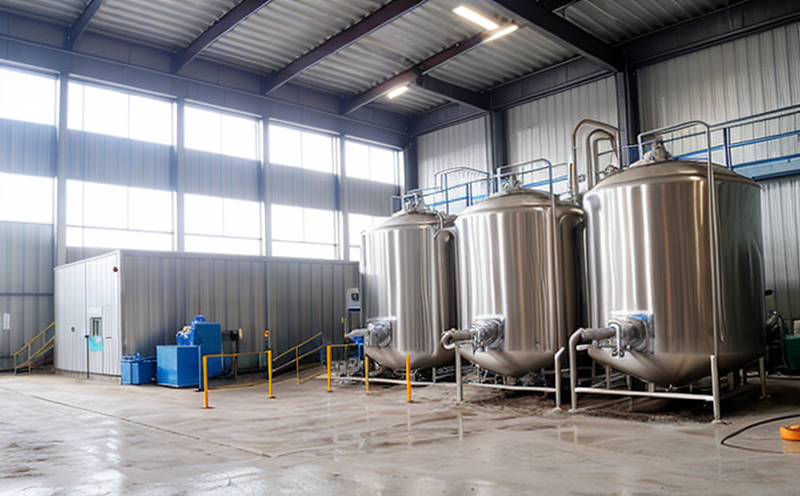ISO 16264 Hydrocarbons GC MS Test in Industrial Water
The ISO 16264 standard specifies a method for determining volatile organic compounds (VOCs) and semi-volatile organic compounds (SVOCs) in water using gas chromatography-mass spectrometry (GC-MS). This comprehensive testing is particularly important in the industrial sector where process waters may be contaminated with hydrocarbons from various sources such as lubricants, solvents, or accidental spills. Our laboratory specializes in this ISO-compliant testing to ensure that water used in critical industrial processes meets stringent quality and safety standards.
The testing procedure involves several key steps: sample collection, preservation, extraction, derivatization (where necessary), purification, and finally analysis via gas chromatography-mass spectrometry. The GC-MS instrument separates the compounds based on their volatility and polarity before mass spectrometry identifies them through fragmentation patterns.
The results of this test are crucial for quality managers and compliance officers as they provide detailed information about the presence and concentration levels of hydrocarbons in process water. This data helps in making informed decisions regarding the treatment processes required to ensure that the water meets all relevant standards, including those set by international bodies like ISO.
Our laboratory adheres strictly to the guidelines provided in ISO 16264, ensuring accuracy and reliability of results. We use state-of-the-art instruments such as Agilent GC-MS systems which are regularly calibrated to maintain precision and accuracy. The test report includes detailed information about each detected compound along with its concentration level, providing a comprehensive overview for our clients.
Understanding the implications of hydrocarbon contamination is vital for maintaining the integrity of industrial processes. Hydrocarbons can interfere with machinery operation, affect product quality, and pose health risks if not properly managed. By conducting this test at regular intervals, companies can monitor their water sources effectively and implement corrective measures promptly when necessary.
The importance of ISO 16264 compliance cannot be overstated in today's regulatory environment. Non-compliance could lead to significant financial penalties, reputational damage, and even legal actions against the company involved. Our commitment to providing accurate, reliable, and timely results ensures that clients stay compliant with all applicable regulations.
Our experienced team of chemists and engineers works closely with each client to understand their specific needs and challenges related to industrial process water testing. We offer customized solutions tailored specifically for your facility’s unique requirements ensuring that you receive the best possible service.
Customer Impact and Satisfaction
Improved Process Efficiency: By identifying hydrocarbons early in the production cycle, companies can take corrective actions before they impact downstream processes.
Better Product Quality Control: Ensuring that process waters are free from contaminants helps maintain consistent product quality and performance.
Enhanced Environmental Responsibility: Compliance with ISO standards demonstrates a company's commitment to environmental sustainability practices, enhancing its reputation among consumers and stakeholders.
Avoidance of costly shutdowns due to unexpected contamination issues leading to higher operational efficiency.
Increased customer trust through consistent adherence to international standards which can translate into increased market share and sales growth.
International Acceptance and Recognition
The ISO 16264 standard is widely accepted across Europe, North America, and Asia-Pacific regions as the benchmark for hydrocarbon testing in industrial waters.
Our laboratory's compliance with this international standard ensures that our reports are recognized globally, facilitating smoother business operations especially for multinational corporations operating in different countries.
Recognition by major industry associations such as ASME (American Society of Mechanical Engineers), API (American Petroleum Institute), and others who endorse the use of ISO 16264 methodology.
Listing on official government websites like those from respective nations' standards bodies indicating acceptance into national regulatory frameworks.
Use Cases and Application Examples
| Use Case | Description |
|---|---|
Oil Refining Plants |
Monitoring solvent residues in cooling towers to prevent corrosion and ensure safety. |
Petrochemical Facilities |
Identifying contamination from accidental spills during transportation or storage operations. |
Cleaning Industries |
Detecting traces of degreasing agents that could affect water quality downstream in wastewater treatment plants. |





